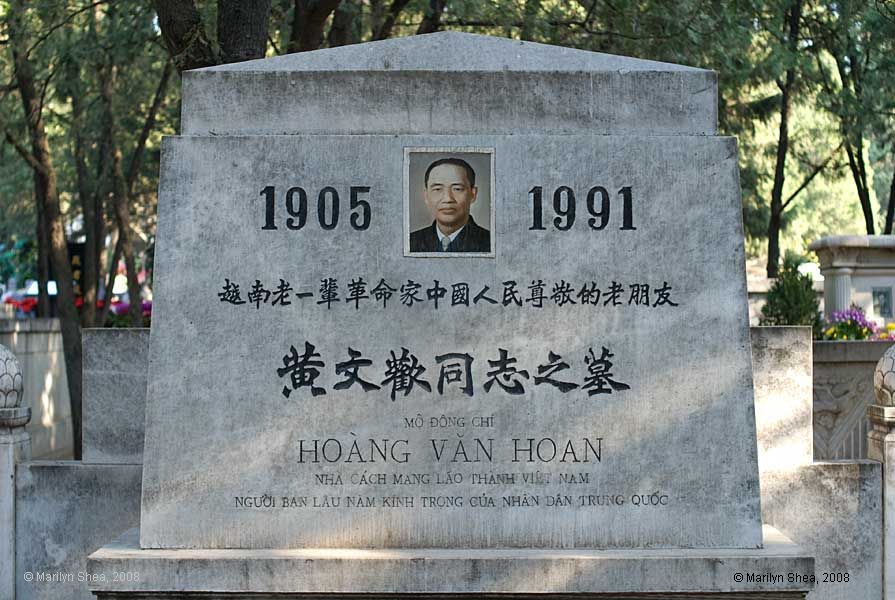 |
| Hoang Van Hoan 黄文欢 (Huáng Wénhuān) formed a long and lasting friendship with China while he was the ambassador from Vietnam from 1950 to 1957. Huoang Van Hoan led or was on numerous other delegations to China to forge the alliance and negotiate aid during the wars with France and then the United States.
Hoang was a close friend of and worked with Ho Chi Minh during the 1930s when they organized political movements to overthrow the French colonial presence. They continued their friendship and Hoang advanced as Ho gained power. When Ho Chi Minh died in 1969, the faction that had assumed power turned their attention to a building a relationship with the Soviet Union. They rejected ties to China and following the brief Chinese Vietnamese border war in 1979, Hoang became a persona non grata. Later in 1979, before he could be attacked, he, like others, escaped Vietnam. Hoang made his way to China via Germany. Hoang reported that the rejection of China had led to a persecution of minorities of Chinese descent in Vietnam, comparing their treatment with that of the Nazi's persecution of the Jews. This not news to the Chinese. For the previous few years there had been forcible relocation of ethnic Chinese from the cities to the countryside, confiscation of businesses and wealth, and a general suppression of the Chinese language and culture. Ethnic Chinese were to integrate into Vietnam or suffer the consequences. During this period about a quarter million ethnic Chinese fled across the border to China. (Note: Chinese Vietnamese relations improved in the 1990s and continue to do so today.) Hoang lived in exile for the rest of his life. |
http://hua.umf.maine.edu/China/Babaoshan/index.html
Last
update: July 2009
© Marilyn Shea, 2009